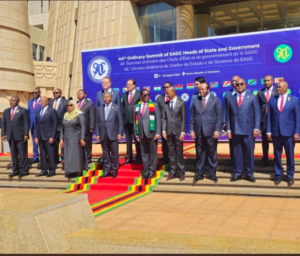REVISITING HISTORY: DEBUNKING MYTHS IN ZIMBABWE’S PAST

In Zimbabwe, a historical controversy has resurfaced, challenging the memory of Ndebele King Lobengula Khumalo. Contrary to the recycled colonial myth that Lobengula “sold” his nation for trivial items like sugar, historical evidence paints a vastly different picture of a leader who fiercely resisted colonial invasion. This misinformation, recently reignited on social media by juxtaposing Lobengula’s image with that of current political activist Sengezo Tshabangu, not only distorts historical facts but also undermines the rich heritage of Zimbabwean resistance against colonial rule.
King Lobengula, inheriting the mantle from his father Mzilikazi who founded the Ndebele State after breaking away from Zulu King Shaka, was far from the betraying figure some portray him to be. His kingdom was a sophisticated polity, marked by a structured system of governance and a formidable military presence, including regiments like Imbizo, Induba, and Zwangendaba. These regiments played crucial roles in battles against colonial forces, notably in the historic battles of Bonko, Gadade, and Pupu between October and December 1893.
The 1888 Rudd Concession, a deceptive agreement orchestrated by Charles Dunell Rudd and his associates, was manipulated to justify the British South Africa Company’s invasion of Zimbabwe. This invasion, falsely premised on mining rights, led to the first Anglo-Ndebele War, culminating in the iconic Battle of Pupu. During this battle, the British South Africa Company’s Wilson Patrol, led by Major Alan Wilson, faced a decisive defeat at the hands of the Ndebele warriors, underlining the military acumen and resistance of Lobengula’s forces.
Despite the eventual colonial occupation, the historical narrative of Lobengula and his warriors deserves to be accurately portrayed and honored. The legacy of the Ndebele fighters, often overshadowed in colonial and Rhodesian accounts, highlights a significant chapter in Zimbabwe’s struggle against colonialism. The construction of monuments, like the one at Rhodes’ grave, and the national recognition of the Pupu Memorial site as a testament to this battle, reflect attempts to balance historical narratives.
The misrepresentation of Lobengula’s legacy to draw parallels with contemporary political figures like Tshabangu, who is accused of disrupting democracy and aiding authoritarian regimes, is not only historically misleading but also disrespectful to the legacy of Zimbabwean resistance. Such narratives serve to perpetuate divide-and-rule tactics, obscuring the true history of resilience and defiance against colonial subjugation.
In light of these historical distortions, it is crucial to revisit and reclaim Zimbabwe’s past, honoring the true heroes and their sacrifices. Accurate historical representation is essential for a nation’s identity and collective memory, particularly in a country with a rich and complex history like Zimbabwe. The story of Lobengula and his warriors stands as a testament to the enduring spirit of resistance and should be remembered and celebrated in its truest form, free from political manipulation and historical misrepresentation.




